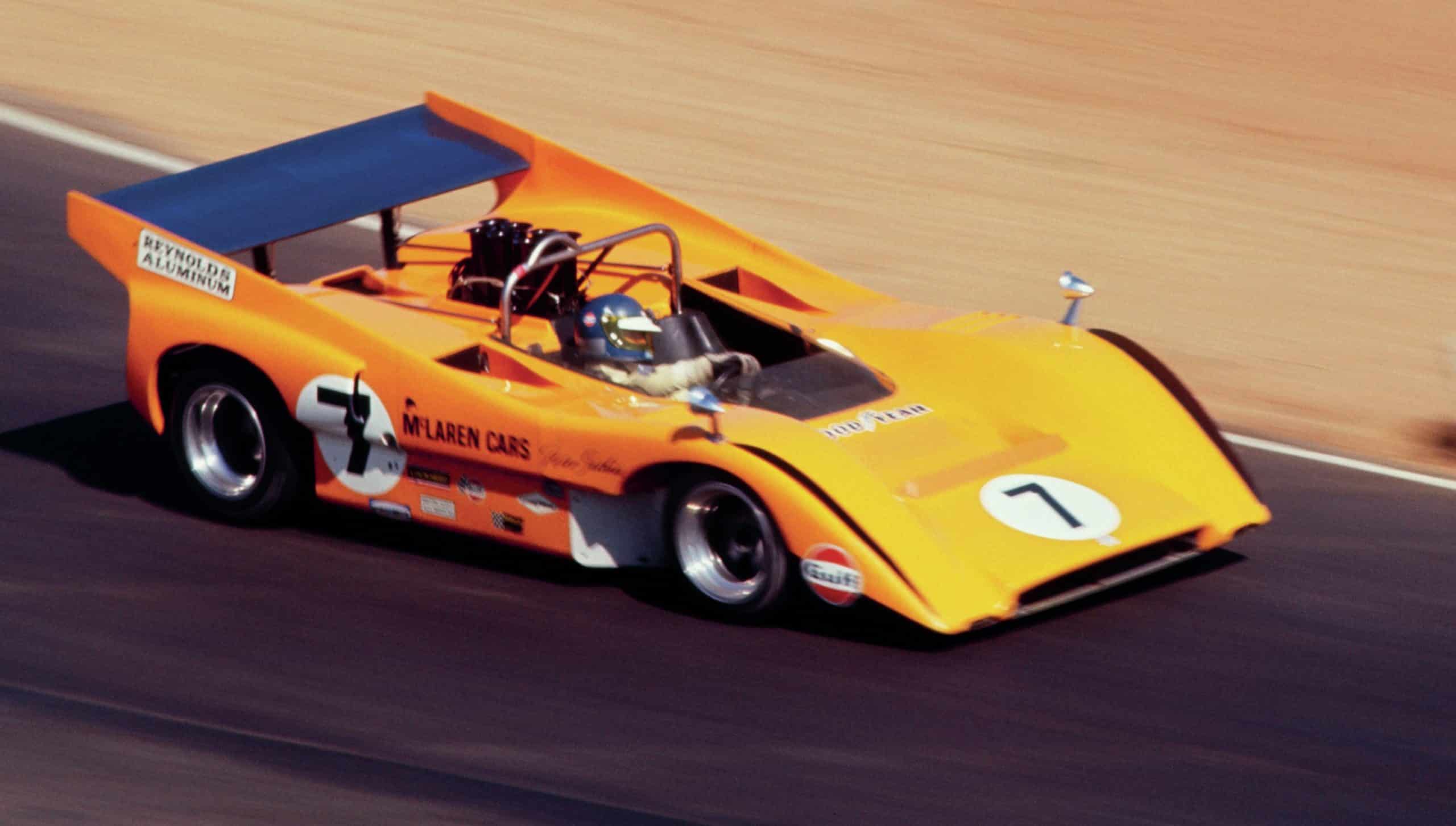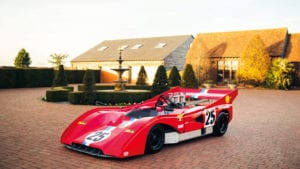McLaren M8: race car buying guide
Four Can-Am titles makes the McLaren M8 one of the most dominant sports cars of its generation, says Robert Ladbrook

Despite Bruce McLaren’s death testing the M8D at Goodwood in 1970, days later the Can Am season began. This is Peter Gethin at Laguna Seca in the year’s penultimate race
Getty Images
Can-Am enjoyed many colourful descriptions. Terms like ‘brutal’ and ‘fire-breathing’ were thrown around, but the one you may not remember was ‘The Bruce and Denny Show’. It didn’t have the dramatic ring, but it was apt, as the combination of Bruce McLaren and Denny Hulme conspired to hoist the New Zealand flag over America’s premier sports car series four times in succession, largely due to the McLaren M8.
During its formative days, Bruce McLaren Motor Racing inhabited a makeshift workshop on the premises of an earthmoving company in New Malden. There McLaren ran Tasman and Formula 2 Coopers before the decision was taken to chase success, and the prize money that went with it, in Can- Am. New premises were sought in Feltham and the first true McLaren, the M1, was born. While there were a smattering of podium finishes for McLaren himself and Chris Amon, Lola took a hold on Can-Am with John Surtees’ and Mark Donohue’s T70s pipping McLaren to the 1966 top spots.
Needing a step forward, McLaren gathered a design team boasting Robin Herd and Tyler Alexander to create a machine for 1967. The result was the Chevrolet-powered M6, featuring the first monocoque chassis constructed by McLaren, more aerodynamic bodywork and fuel injection for its V8 heart. The result was astounding, with McLaren and Hulme winning every round except one and McLaren had its Can-Am title.
McLaren faced a fight to stay ahead against the Lolas and Chaparrals, but the virtually unlimited regulations of the time encouraged a development war, and McLaren took to them better than any other with the creation of the M8.
Utilising the M6’s chassis, McLaren switched from a 5.9 block to an aluminium 7-litre Chevy V8. The car’s fibreglass body was widened, and its shape smoothed into the more wedge-like design. McLaren won four of the six rounds in their M8As, with Hulme wrapping up his first title.
For 1969 the M8B spawned an enormous wing above the chassis. McLaren and Hulme won every race between them. The following year the elevated wings were banned, so the M8D ran with a sleeker arrangement, earning the nickname ‘Batmobile’. They won eight of 10 races in 1970 to seal a fourth straight McLaren title and a second for Hulme.
To complement the success, McLaren contracted Ron Tauranac and Trojan Racing to begin creating customer versions of the M8. These were close to the spec of the works cars, but were sold sans engine.
The M8F upgraded power further with an 8-litre engine and Peter Revson sealed McLaren its final title. However, the 917/10 would end McLaren’s winning streak in 1972 before the arrival of the 917/30 Can-Am monster in 1973. The fact it took all the might of Stuttgart to halt McLaren’s run says much about the M8.
One for sale
1972 McLaren M8F
One of only 12 M8Fs built, this was raced by Teddy Pilette for VDS in the Interserie in 1972-73.
£425,000
girardo.com
McLaren M8 statistics
- Price new N/A
- Price now £400,000-£600,000
- Engine 7-litre alloy Chevrolet V8, (8-litre M8F)
- Rivals Lola T70, Ferrari 612P, Chaparral 2G
- Verdict A huge success that kickstarted an entire customer car industry

